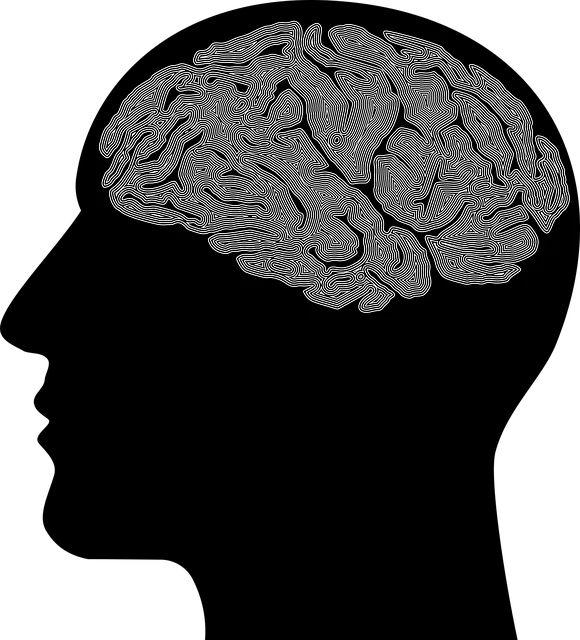Longmont Kaiser's mental health programs focus on positive thinking as a powerful tool for enhancing well-being and life satisfaction. These programs, tailored to community needs, incorporate CBT, mindfulness, group discussions, and creative activities to reduce stress, anxiety, and depression. Key strategies include cognitive reframing, gratitude practices, role-playing, journaling, and mood tracking surveys to measure success and refine techniques, ultimately fostering resilience and emotional flexibility.
“Unleash the power of positive thinking with Longmont Kaiser’s innovative mental health programs. This comprehensive guide explores how structured exercises can transform minds and improve well-being. We delve into the science behind positive thinking, offering insights on its profound impact. From designing tailored interventions to practical implementation strategies for professionals, this article provides a roadmap for successful integration. Discover how Longmont Kaiser’s programs measure success, showcasing the effectiveness of these techniques in fostering resilience and enhancing mental health within the community.”
- Understanding Positive Thinking and its Impact on Mental Well-being
- Designing Effective Positive Thinking Exercises for Longmont Kaiser Programs
- Implementing the Exercises: Strategies and Techniques for Mental Health Professionals
- Measuring Success: Evaluating the Effectiveness of Positive Thinking Programs at Longmont Kaiser
Understanding Positive Thinking and its Impact on Mental Well-being

Positive thinking is a powerful tool that can significantly enhance mental well-being and overall quality of life. It involves consciously shifting one’s mindset to focus on optimism, gratitude, and positive affirmations, which have been scientifically proven to reduce stress, anxiety, and symptoms of depression. By fostering a more positive outlook, individuals can cultivate resilience in the face of challenges, leading to improved coping mechanisms and enhanced mental flexibility.
The impact of positive thinking is particularly notable when considered in the context of programs like Longmont Kaiser’s mental health initiatives. Their community outreach program implementation often includes strategies aimed at Mental Illness Stigma Reduction Efforts, encouraging self-care routine development for better mental health. Through these efforts, individuals learn to challenge negative thought patterns, replace them with positive affirmations, and cultivate a mindset that promotes overall well-being.
Designing Effective Positive Thinking Exercises for Longmont Kaiser Programs

Designing Effective Positive Thinking Exercises for Longmont Kaiser Programs requires a deep understanding of both psychological principles and the unique needs of the community. The exercises should be tailored to promote mental well-being, targeting specific aspects such as resilience, stress management, and emotional regulation. Incorporating techniques from cognitive-behavioral therapy (CBT) and mindfulness practices can help participants challenge negative thought patterns and cultivate a more optimistic outlook.
Longmont Kaiser mental health programs benefit from innovative approaches that engage participants actively. For instance, group discussions, guided meditations, and creative activities can foster a sense of community while encouraging positive thinking. Additionally, incorporating real-life scenarios and role-playing exercises enables individuals to practice crisis intervention skills, enhancing their ability to navigate challenging situations with composure. The successful implementation of these exercises relies on ongoing risk assessment for mental health professionals, ensuring they are equipped to handle potential triggers and adapt strategies as needed. This holistic approach not only improves individual well-being but also contributes to the development of public awareness campaigns that promote a culture of mental health literacy.
Implementing the Exercises: Strategies and Techniques for Mental Health Professionals

Implementing positive thinking exercises involves a strategic approach tailored for mental health professionals aiming to enhance client well-being at Longmont Kaiser mental health programs. First, Mood Management is key; integrate exercises that encourage clients to recognize and reframe negative thoughts, fostering a more optimistic outlook. Techniques such as cognitive reframing and gratitude practices can significantly improve mood and overall psychological resilience.
Additionally, incorporating Social Skills Training within these exercises proves beneficial. Role-playing scenarios and group discussions facilitate the development of effective communication strategies, enhancing clients’ ability to engage in positive social interactions. Moreover, Self-Awareness Exercises, like journaling and mindfulness practices, empower individuals to better understand their thoughts and emotions, enabling them to actively participate in their mental health journey. These integrated strategies create a holistic approach that supports long-term well-being.
Measuring Success: Evaluating the Effectiveness of Positive Thinking Programs at Longmont Kaiser

Measuring success is a vital step in understanding the effectiveness of Longmont Kaiser’s mental health programs, particularly those focused on positive thinking. By implementing structured evaluation methods, the hospital can assess the impact and benefits derived from these initiatives. One approach could involve surveying participants before and after program engagement to gauge changes in their emotional well-being. These assessments might capture improvements in mood, stress levels, and overall satisfaction, providing quantifiable data on the success of the positive thinking exercises.
Additionally, Longmont Kaiser can employ qualitative methods, such as interviews or focus groups, to gain deeper insights into participants’ experiences. This allows for a more nuanced understanding of how these programs influence people’s lives, including any challenges faced and perceived barriers to maintaining a positive mindset. Such feedback is invaluable for refining the emotional well-being promotion techniques and public awareness campaigns development, ensuring they remain effective and relevant in supporting individuals on their journey towards improved mental health.
The implementation of positive thinking exercises within Longmont Kaiser mental health programs has shown promising potential in enhancing participants’ overall well-being. By integrating these strategies, professionals can create a supportive environment that encourages resilience and optimism. The success of these programs, as evidenced by the measured improvements, underscores the power of positive psychology in transforming lives. Continued exploration and refinement of these exercises will further benefit individuals seeking mental health support at Longmont Kaiser and beyond.






